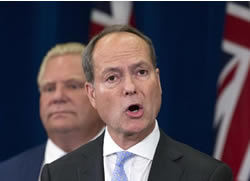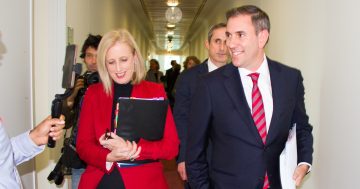CANADA
 Public Service pay has been targeted by the Canadian Provincial Government of Ontario as it seeks to balance its Budget.
Public Service pay has been targeted by the Canadian Provincial Government of Ontario as it seeks to balance its Budget.
President of the Treasury Board, Peter Bethlenfalvy (pictured) said management of public finances was a “moral imperative” to help eliminate a C$13.5 billion (A$14.2 billion) Provincial deficit.
He said talk about controlling spending or managing expenditures meant recognising that a central component to this conversation was public sector compensation.
“Let me be clear, our public sector workers have earned their generous compensation,” Mr Bethlenfalvy said.
“I am amazed every day by their hard work, dedication, and diligence, but we must be honest about what we can reasonably afford while ensuring the sustainability of Government programs and services.”
He said about C$72 billion (A$75.8 billion) a year was spent on public sector compensation, and ways to curb rising costs could include wage agreements that were lower than current trends, “trade-offs” that would reduce compensation costs, and legislative measures.
“While no decisions have been yet made, the Government is considering legislated caps on allowable compensation increases that can be negotiated in collective bargaining or imposed in binding arbitration,” Mr Bethlenfalvy said.
He said later that there was no fixed amount the Government was looking to save through wage restraint.
His comments sparked a quick response from Opposition lawmaker Catherine Fife, who said Premier, Doug Ford was giving away millions of dollars in “gravy train appointments” to his friends and insiders, while squeezing workers in education, health care and social services.
She was apparently referring to attempts by Mr Ford to appoint his long-time friend Toronto Police Superintendent, Ron Taverner as Ontario Provincial Police Commissioner, and before that to a job with the Ontario Cannabis Store.
Mr Taverner withdrew from consideration, citing the need to “protect the integrity of frontline officers”.
Toronto, 4 April 2019











